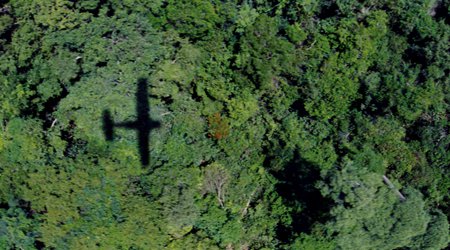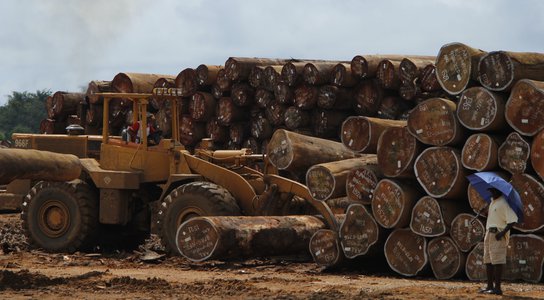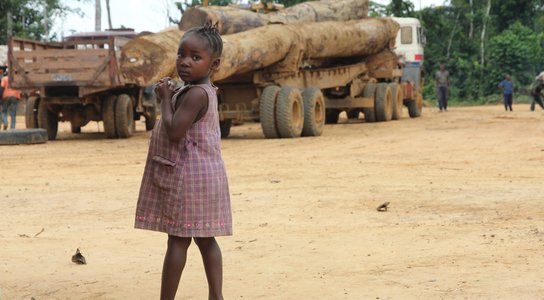There have been highs. There have been lows. Above all, there have been hard-hitting investigations, innovative campaigns for change and progress in protecting human rights and the environment. Join us for a look back at the eventful year that has been 2016, and a quick look ahead to 2017. To ensure you're always up to date, sign up for emails
Finding the facts
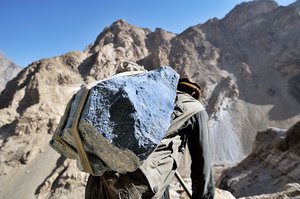
We investigated lapis lazuli mining in Afghanistan. Credit: Philip Poupin
As ever, we made waves with signature investigations in 2016. Some were years in the making, some used innovative data analysis, and all were based on rigorous research and close work with local partners across the world.
We revealed how the brilliant blue gemstone lapis lazuli from the ancient mines of Afghanistan’s Badakhshan province is supplying millions of dollars of funding to armed groups, insurgents and strongmen with links to the Taliban.
In the Democratic Republic of Congo, we delved into a recent gold rush in the eastern South Kivu province to show that beneficiaries of the boom included armed groups and a predatory Chinese-owned company, Kun Hou Mining. Four people named in the investigation were subsequently detained for a period.
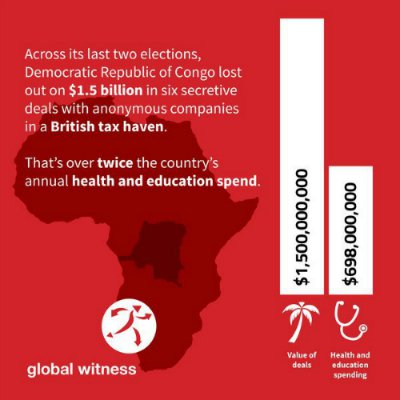 As we reported in ‘Out of Africa’, the Congolese state has sold off valuable mining and oil assets at suspiciously low prices, which meant that the country’s treasury lost out on $1.5 billion dollars in crucial revenue. All these deals benefited a handful of anonymous companies located in an offshore tax haven in the British Overseas Territories.
As we reported in ‘Out of Africa’, the Congolese state has sold off valuable mining and oil assets at suspiciously low prices, which meant that the country’s treasury lost out on $1.5 billion dollars in crucial revenue. All these deals benefited a handful of anonymous companies located in an offshore tax haven in the British Overseas Territories.
We also unearthed how secrecy laws in U.K. tax havens enabled former England cricketer Phil Edmonds and his partner Andrew Groves to fleece millions from investors in London’s stock market as they carved out an African business empire with bribery and dirty tricks - read the full story here. Senior Liberian officials involved in the investigation were were later arrested and face trial in the new year.
Rivalling Edmonds and Groves for ‘entrepreneurs of the year’ were the family of Cambodian prime minister Hun Sen. We exposed how they are amassing vast personal fortunes in Cambodia’s private sector, with significant control across most of its lucrative industries. And we published the data behind the investigations in the Cambodia corporates database to allow citizens, journalists and others to securely search company ownership information.
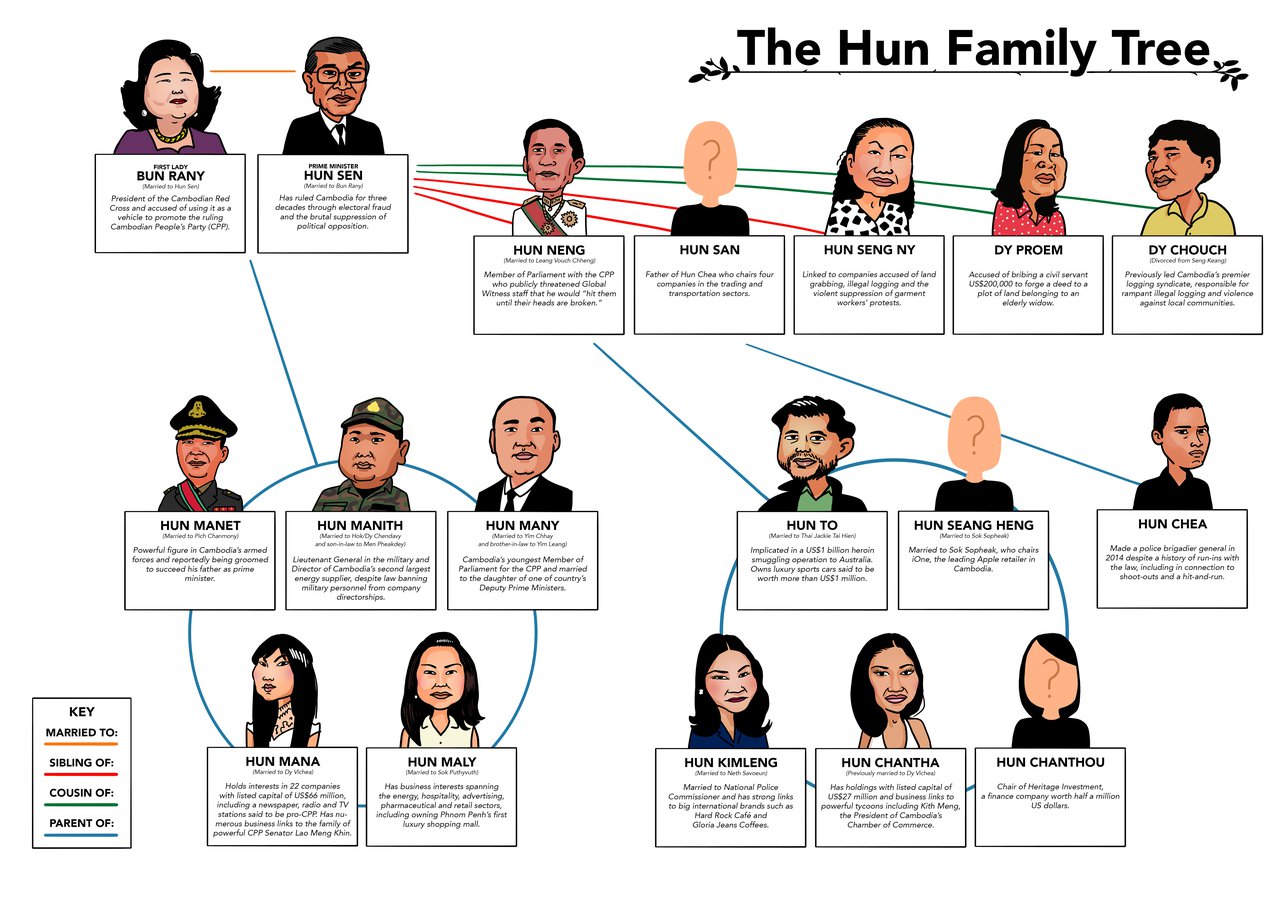
The Hun family tree - from our Cambodia investigation, 'Hostile Takeover'
In Liberia, 15 months on from our hard-hitting report The New Snake Oil, we published new allegations on how palm oil company Golden Veroleum bulldozed religious sites and paid police armed with assault rifles to protect its plantations. It’s not all name-and-shame though: our guide to community forestry management contains ideas and discussion to help communities benefit from the full value of the country’s rich forest wealth.
In November, we collaborated on the most comprehensive look to date at how corruption is fuelling the global landgrabbing crisis.
And we documented the human cost of people’s struggle to protect their land, forests and rivers against destructive industries for our latest report into killings of environmental defenders. With 185 deaths across 14 countries, 2015 was the worst year on record. However, as the year came to a close, we welcomed calls from the UN Rapporteur on Human Rights Defenders for concrete action to end this bloodshed. Read his guest blog here
Never miss a thing - sign up for email updates from Global Witness
Exposing the story
In addition to our signature in-depth investigations, Global Witness helped shape policy and public debate this year through collaborations and swift reactions to breaking news.
Way back in January, CBS 60 minutes in the U.S.A showcased our hidden camera investigation into how suspect money could enter the U.S., Undercover in New York. This was immediately followed by bipartisan legislation in both the House and Senate to tackle some of the problems we exposed.
With Virunga national park under threat from oil drilling once more, we released this animation to explain the threat to the park. Meanwhile, we led a coalition of 60 other organisations to call on UNESCO and the governments of DRC and Uganda to take action to protect the park and the people who depend on it. As a result, UNESCO has taken a firm stand and no companies have bid for the licence areas threatening Virunga.
Following the tragic murder of Honduran activist Berta Cáceres in March, we joined with local civil society partners to call for an investigation into her death, and to highlight the broader issue of deaths of environmental activists in Honduras which numbered 101 between 2010 and 2014.
In April, when the Panama Papers leaked we were immediately on the story - calling out the extent to which corruption, tax evasion, and other criminality is made possible by the global offshore industry, even appearing in a new TED talk on the issue.
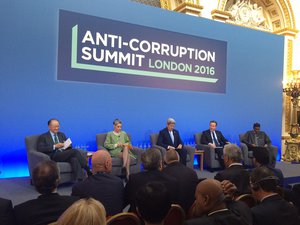
We played a key role in the U.K.'s historic Anti-Corruption Summit.
And in May - when it was still Prime Minister Cameron rather than Prime Minister May - we played a key role in the U.K.’s historic Anti-Corruption summit. The summit saw bold moves on U.K. property (though a glaring blindspot when it came to tax havens) and more countries matching the U.K. in opening up information about shell companies.
In July, Myanmar’s new government announced a freeze on the licensing of jade mines - following work by Global Witness and our local partners to expose widespread abuses at the heart of this multi-billion dollar trade. A few months later, as Aung San Suu Kyi made an historic visit to the U.S. and President Obama announced that economic sanctions would be lifted, we called for a clear plan to support fledgling reforms in the industries that will define the country’s future.
More recently, we were proud to congratulate PNG activist and our nominee Paul Pavol who won the Alexander Soros Foundation Award in recognition of the bravery and tenacity he has shown in the face of the world’s largest tropical logging company. We’ll be bringing you more on Papua New Guinea in 2017.
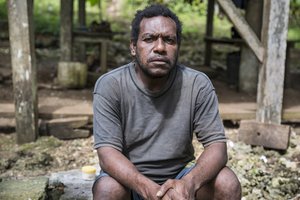
We congratulated Papua New Guinea activist Paul Pavol, who won the Alexander Soros Foundation Award.
Changing the system
As well as the progress mentioned above, we’ve celebrated impacts in many other long-running campaigns and new routes to justice and accountability.
Just last month, the EU reached agreement on a new regulation on so-called ‘conflict minerals’. It’s a welcome step forward which means that many important EU companies will, for the first time, be legally required to take responsibility for their mineral supply chains and to take steps to prevent their trade being linked to conflict or human rights abuses. However, we have already warned that concessions and last-minute loopholes could undermine its impact.
In September, following our campaign, the Prosecutor of the International Criminal Court (ICC) announced that it is to expand its focus, signalling a landmark shift in international criminal justice which could reshape how business is done in developing countries. From now on, the ICC will investigate crimes linked to land grabbing and environmental destruction meaning that company executives, politicians and other individuals could soon be held criminally responsible under international law for violently seizing land, razing tropical forests or poisoning water sources.
After a 16 year campaign with our Publish What You Pay allies, the U.S. Securities and Exchange Commission (SEC) adopted a landmark transparency rule which requires U.S.-listed oil, gas and mining companies to publish details of their payments to governments for the right to exploit a country’s natural resources. This will deter corrupt deals and enable citizens to follow the money from oil and mining projects.
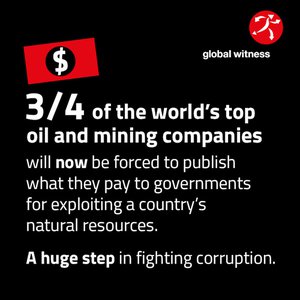
In the U.K., we saw the publication of the world’s first open register of the real owners and controllers of companies - a huge step towards greater transparency and something we’ve long campaigned for. We’ve already joined up with volunteer data scientists to probe this new data.
Internationally, the global transparency scheme the Extractive Industries Transparency Initiative (EITI) adopted groundbreaking new rules to crack down on anonymous companies by requiring all oil, gas and mining companies in 51 resource rich countries to disclose their real owners. We led a campaign for these rules alongside our civil society partners in the Publish What You Pay coalition.
And finally, as the year draws to a close, new laws to fight corruption are close to realisation in both the U.S. and U.K. - both named for Russian whistleblower Sergei Magnitsky. After the U.S. bill was proposed, we said we’d push hard for the U.K. to follow suit. On December 5, a cross-party group of backbench MPs tabled an amendment to a U.K. bill to do just that!
Where will 2017 take us?
As we near the end of a tumultuous year, there is much to be concerned about. As we said in statements at the time, both the U.K. vote to leave the European Union and the U.S. election of Donald Trump pose grave dangers to the gains we have already made.
What’s more, both events are emblematic of the growing and deeply worrying trend around the world towards a more racist, sexist, xenophobic, inward-looking, and fear-based mentality.
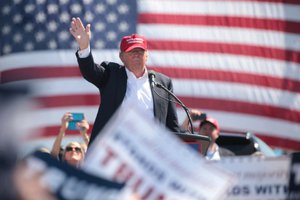
The election of Donald Trump poses grave dangers to gains we have already made. Credit: Gadge Skidgmore, Flickr
While the path of Brexit remains unclear, that of the future Trump administration has already taken an alarming turn. We are opposing the President-elect’s nomination of ExxonMobil CEO Rex Tillerson as Secretary of State - and will continue to strongly challenge the conflict of interest and governance issues surrounding the administration.
As well as defending the gains we have already made and the values we hold dear, we’ll be taking our campaigning in exciting new directions next year.
We will bring our unique skills to bear in our campaign against climate change, with hard-hitting new investigations to uncover vested interests in the fossil fuels sector. We will scale up our work with investors, including to highlight the projects and sectors linked to violence against environmental defenders.
Finally, while we’re limited in what we can say right now, we are excited to have many new investigations in the pipeline and new tools and technologies with which to share our research. We look forward to sharing these with you in the New Year!
